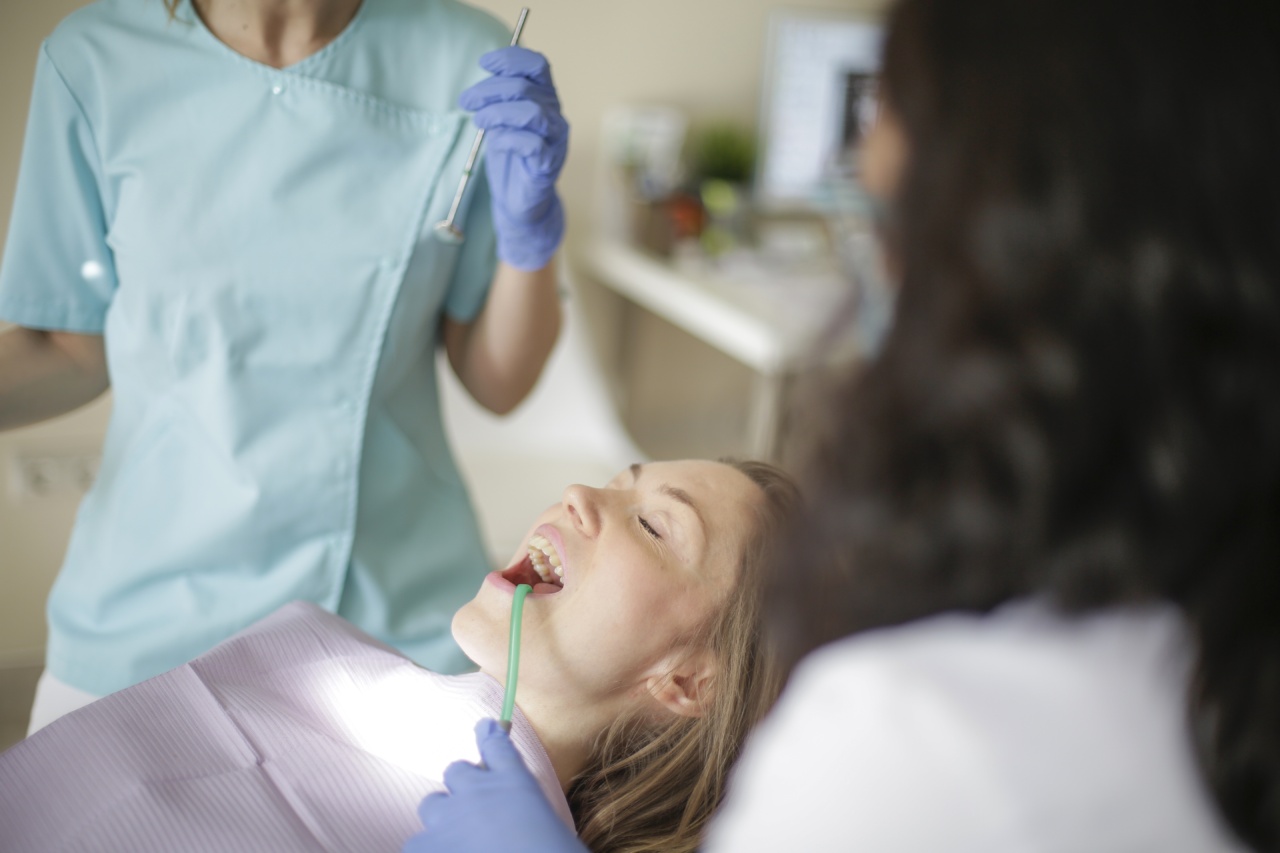Teeth whitening has become increasingly popular in recent years, as more people strive to achieve a bright and radiant smile.
While professional teeth whitening treatments are available, some individuals opt for the do-it-yourself (DIY) route in an attempt to save money or for convenience. However, DIY teeth whitening methods come with a host of risks that can negatively impact oral health.
In this article, we will explore some of the dangers associated with DIY teeth whitening and why it is essential to consult a dental professional for safe and effective treatment.
1. Enamel Damage
One of the significant risks of DIY teeth whitening is enamel damage. Enamel is the outer layer of the teeth, protecting the sensitive dentin underneath.
Harsh or improper whitening techniques can erode the enamel, leaving the teeth vulnerable to tooth decay, sensitivity, and discoloration. Overuse of DIY whitening kits or homemade remedies can lead to irreversible damage, causing long-term oral health problems.
2. Gum Irritation and Sensitivity
Another potential risk of DIY teeth whitening is gum irritation and tooth sensitivity. Many over-the-counter whitening products contain bleaching agents such as hydrogen peroxide.
If these products are not used correctly or left on the teeth for too long, they can come into contact with the gums, leading to irritation, inflammation, and even chemical burns. Additionally, improper use of whitening agents can cause tooth sensitivity, making it uncomfortable or painful to consume hot or cold foods and beverages.
3. Uneven Whitening
Achieving a uniformly white smile is a common goal for individuals seeking teeth whitening treatment. DIY methods often fail to provide consistent results, leading to uneven whitening.
Over-application of whitening agents or using homemade remedies with varying concentrations can result in patchy or streaky teeth, further exacerbating the aesthetic issues one intended to resolve.
4. Increased Tooth Sensitivity
Tooth sensitivity is a common side effect of many teeth whitening methods, even when conducted by dental professionals. DIY methods, however, may increase the risk of intensified tooth sensitivity.
This is typically a result of using ill-fitting or poorly designed whitening trays that allow the whitening agent to come into direct contact with the gums and sensitive tooth roots. The greater the exposure of these sensitive areas to the whitening agent, the more likely it is for individuals to experience discomfort and heightened tooth sensitivity.
5. Risk of Allergic Reactions
Some individuals may have undiagnosed allergies or sensitivities to certain ingredients commonly found in DIY teeth whitening products.
While dental professionals are trained to identify and prevent any adverse reactions, individuals attempting to whiten their teeth at home may be unaware of potential risks. Allergic reactions to whitening agents can manifest as rashes, swelling, or even difficulty breathing in severe cases.
By consulting a dentist, individuals can avoid the potential dangers associated with allergic reactions and receive appropriate guidance on safe teeth whitening.
6. Increased Risk of Gum Disease
DIY teeth whitening methods can increase the risk of gum disease if not performed correctly. Rubbing abrasive substances directly onto the teeth in an effort to remove stains may damage the gums, creating an entry point for harmful bacteria.
This can lead to gum inflammation, bleeding, and potentially more severe periodontal issues. Dental professionals are skilled in identifying the early signs of gum disease and can provide appropriate treatment and guidance, reducing the risk of gum-related complications.
7. Lack of Professional Supervision
One of the most significant advantages of seeking professional teeth whitening is the presence of supervision and guidance from dental experts.
DIY methods lack this crucial element, leaving individuals to navigate the teeth whitening process with little to no professional advice. Without proper supervision, individuals may not achieve their desired results and can inadvertently harm their oral health.
By consulting a dental professional, individuals can receive customized treatment plans, ensuring the safety and effectiveness of their teeth whitening journey.
8. Temporary Results
Many DIY teeth whitening methods offer only temporary results. Over-the-counter products and homemade remedies often lack the strength and effectiveness of professional whitening treatments.
This means that individuals who opt for DIY methods may need to repeat the process frequently, increasing the risk of enamel damage, sensitivity, and other oral health issues. Dental professionals can provide long-lasting teeth whitening solutions, maximizing results and minimizing potential risks.
9. Delayed Diagnosis of Dental Issues
Attempting to whiten teeth at home without the supervision of a dental professional can hinder the early diagnosis of underlying dental issues.
Teeth discoloration can sometimes be a symptom of more serious problems, such as tooth decay or enamel erosion. By consulting a dentist before undergoing teeth whitening treatment, individuals can ensure that any potential dental issues are addressed, preventing further damage and complications down the line.
10. Legal and Quality Concerns
DIY teeth whitening often involves purchasing products online or from unreliable sources. This poses legal and quality concerns, as these products may not meet safety standards and regulations.
Purchasing counterfeit, expired, or unapproved teeth whitening products could result in severe harm to oral health. Dental professionals only utilize approved and tested whitening solutions, ensuring the safety and effectiveness of the treatment.
In Conclusion
While the allure of achieving a bright and dazzling smile from the comfort of one’s own home may be tempting, the risks associated with DIY teeth whitening are significant.
From enamel damage to gum irritation, the potential dangers can have long-lasting effects on oral health. It is crucial to consult with a dental professional to receive safe and effective teeth whitening treatment. By doing so, individuals can avoid unnecessary risks and achieve the beautiful smile they desire under expert supervision.





























